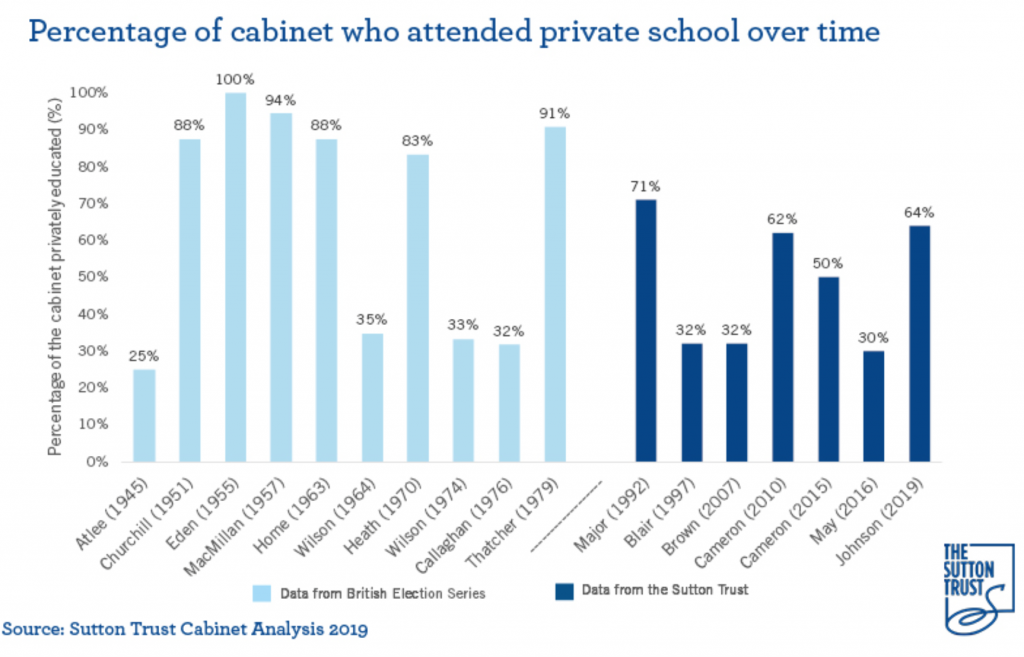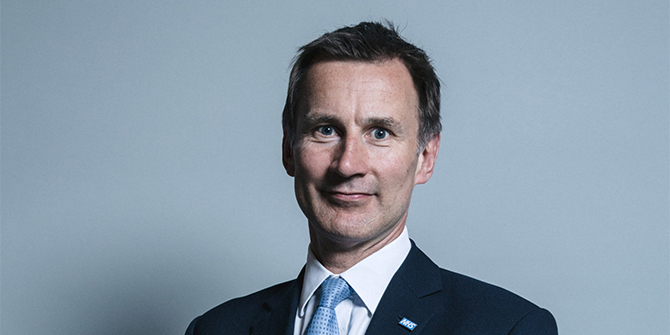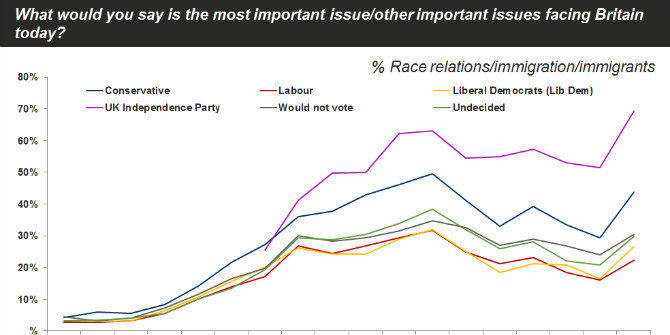 Looking at the educational background of the new cabinet, as well as how it compares to that of its predecessors, Rebecca Montacute explains how socio-economic diversity in the top professions can be increased.
Looking at the educational background of the new cabinet, as well as how it compares to that of its predecessors, Rebecca Montacute explains how socio-economic diversity in the top professions can be increased.
On entering Number 10, Boris Johnson claimed he would appoint a ‘cabinet for modern Britain’. In one important way, the cabinet is indeed more like the country than ever before, with a record number of ministers from ethnic minority backgrounds. But on other measures, the new cabinet is much less representative: it remains predominantly male (76%), and our research found that the proportion who were privately educated (64%) has more than doubled compared to Theresa May’s first cabinet in 2016 (30%).
How representative are the educational backgrounds of Johnson’s cabinet?
Given almost two-thirds of Boris Johnson’s cabinet attended a private school, the new government is now nine times more likely to have been independently educated than the 7% of the general population who themselves go to fee paying schools. This proportion is also higher than the parliamentary Conservative party itself, with a smaller but still high proportion (45%) of the party’s MPs having attended a private school. Four members of the new cabinet attended just one such school, Eton College, including the new Prime Minister.
Grammar school alumni are also over-represented in the new cabinet. Most cabinet ministers will have been educated after grammar school numbers declined substantially in the 1970s, and since then, only around 5% of the population have attended a grammar. However, almost double that proportion in the cabinet went to a selective school (9%); only 27% attended a comprehensive, the type of school which educates most of the population.
But there is some positive news on the educational backgrounds of the new cabinet. Boris Johnson has appointed ministers from state educated backgrounds to some of the most important roles in government. The new Chancellor, Foreign Secretary, and Home Secretary all attended comprehensive or grammar schools. The new Education Secretary, Gavin Williamson, is just the second person in that role to have attended a state comprehensive. 
How does the new cabinet compare to previous cabinets?
Although the privately educated proportion of Johnson’s cabinet is considerably higher than Theresa May’s in 2016, it is only slightly higher than David Cameron’s in 2015 (50%) and similar to the Coalition’s cabinet in 2010, of whom 62% were alumni of fee-paying schools.
Johnson’s cabinet has, however, bucked the general downward trend seen in Conservative governments since the 1990s, with an increase in those privately educated after falls for the last four Conservative administrations. Despite that, ministers in the new cabinet are less likely to have been to an independent school than those of several other Conservative governments, including John Major’s (71%) and Margaret Thatcher’s (91%).
A high proportion (45%) of the new cabinet attended Oxford or Cambridge. This compares with 31% of all Conservative MPs, 20% of Labour MPs and 24% of all MPs. A further 24% of Johnson’s cabinet were educated at other Russell Group universities (excluding Oxbridge), and most attended university.
Why is this important?
Who gains a role at the top table of government matters. The people in these positions make decisions that affect all of us, and if they largely come from similar backgrounds, and go through the same institutions, they will collectively have a very limited set of life experiences to bring to the table. Indeed, over a third (36%) of the new cabinet not only attended private schools but also went on to attend Oxford or Cambridge. With such a limited set of perspectives, even with the best intentions, it’s likely there are important issues the government will simply miss or not consider a priority.
A good example is the amount of time politicians spend talking about top universities, especially Oxbridge. Scrutiny on access to these institutions is important, but the attention they receive is out of all proportion to the small proportion of the population they educate. Other universities, as well as vital alternative routes into the workplace, such as apprenticeships and further education, inevitably miss out.
The make-up of the cabinet is also important because it says something about how open top jobs are to people from all socio-economic backgrounds. While private schooling is not a perfect indicator for this, most families who can afford the fees to send their children to these schools will be from higher socio-economic backgrounds. Indeed, according to the Independent Schools Council, just 1% of private school pupils currently have all their fees paid for, and just 4% have more than half their fees covered. The over-representation of the privately educated in the cabinet also suggests that most ministers are from wealthier backgrounds, and that those from lower socio-economic backgrounds find it harder to make their way to the top.
Schools are also not just a proxy for socio-economic diversity, but in and of themselves an important part of someone’s background. From the quality of teachers that students have access to, to the range of extracurricular activities they can take part in, schools play a pivotal role. In 2018, student societies at Eton welcomed politicians including former Prime Minister John Major and the former Home Secretary Alan Johnson to speak to students. This would simply be unheard of in the average comprehensive school. These sorts of opportunities are likely to play a key role in how comfortable alumni of top private schools go on to feel when entering the world of politics.
How can socio-economic diversity in the top professions be increased?
Socio-economic inequalities start before students even enter the school gates, and it’s important that social mobility is a core mission in every part of education and through to the workplace, from the early years, all the way to access to the professions.
That’s why the Sutton Trust are calling for changes at every level, from high quality early years education, through to tackling financial barriers into the world of work, including unpaid internships. In several industries, not least in politics, too often an expectation of unpaid work is the norm, shutting out those who cannot afford to work for free. Indeed, recent Sutton Trust research found that almost a third of staffers working in Westminster (the entry-level to political careers for many) have previously worked for an MP unpaid. Promisingly, on his first day in parliament, Boris Johnson proclaimed his support for the campaign to ban unpaid internships. Doing so could be an important first step for the new government to better open-up careers in politics (as well as many other top professions), so that in future the cabinet is more representative of the country it governs.
_____________
About the Author
 Rebecca Montacute is Research Fellow at The Sutton Trust.
Rebecca Montacute is Research Fellow at The Sutton Trust.
All articles posted on this blog give the views of the author(s), and not the position of LSE British Politics and Policy, nor of the London School of Economics and Political Science. Featured image credit: Pixabay (Public Domain).









What astounds me, is despite the quantity of privately educated cabinet members, the staggering levels of gross incompetence. Clearly reading Latin or classics does not mean you will be capable of running a government department well. Spin and hyperbole yes, common sense and logic, not at all.